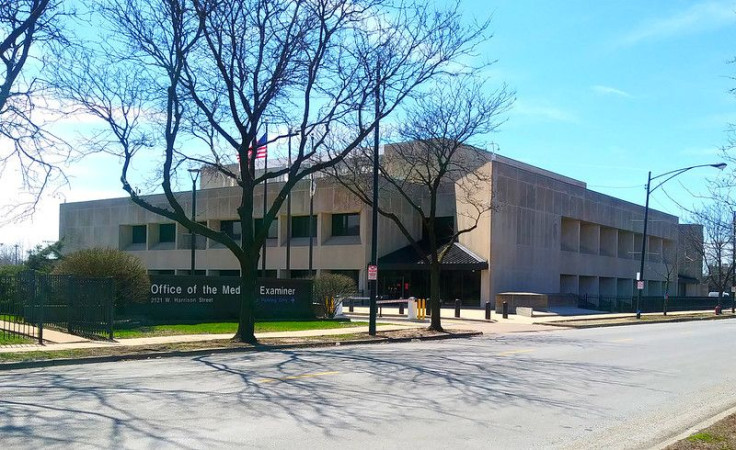Coronavirus Deaths: Chicago-Area Medical Examiner Looking For Warehouse To Store COVID-19 Victims

KEY POINTS
- The last time Chicago needed extra space for bodies was during the 1995 heat wave that killed 700 people in five days
- The medical examiner said Cook County has seen at least 71 COVID-19 deaths
- Officials are predicting the number of deaths could rise to 88 a day by mid-April
The Chicago-area medical examiner Wednesday began searching for a refrigerated warehouse that can house as many as 1,000 bodies as the number of coronavirus deaths in the state mounts. A refrigerated truck already has been set up in the Cook County Medical Examiner's Office parking lot, ready to house 30 bodies.
The last time the morgue used refrigerated trucks was the 1995 heat wave that killed more than 700 people in less than a week. The morgue itself can hold 285 bodies.
State officials said the number of those with confirmed infections in the state rose to 6,980 with 141 deaths – 42 of the deaths were added Wednesday, the highest total since COVID-19 began ravaging the state.
Most of the cases and deaths are in the Chicago area, with at least 60 deaths reported in Cook County; eight in Will County, south of the city; 11 in DuPage, seven in Kane and two in Kendall counties, west of the city; and two each in Lake and McHenry counties, north of the city. The rest of the deaths occurred in downstate Illinois, according to a running tally being kept by Johns Hopkins University. Cook County officials said the county total actually is at least 71.
“We want to be prepared for any number of fatalities,” Dr. Ponni Arunkumar, chief medical examiner, told the Tribune on Tuesday. “For more than 200 cases, I think a separate location is easier to work with and more respectful.”
A statewide projection predicts 88 deaths a day by mid-April.
Arunkumar said she wants a separate place for coronavirus victims, whose bodies are cleaned with hospital-grade disinfectant before they are stored.
“Just like the public, some of us are nervous, but everyone has that goal of, ‘We need to conduct our operations. We are essential operations,’” Arunkumar said.
She added: “We want to treat the deceased with the respect they deserve. But we need to take every effort possible to reduce the number of deaths.”
Gov. J.B. Pritzker signed an order early Wednesday extending the state’s stay-at-home order through the end of the month to slow spread of the virus.
© Copyright IBTimes 2024. All rights reserved.






















